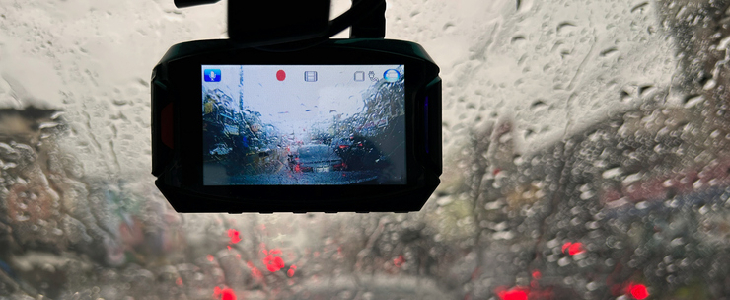Dash cams, or dashboard cameras, are compact recording devices mounted on a vehicle’s dashboard or windshield that continuously record the view through the vehicle’s front windscreen and sometimes rear or other windows. They serve as an impartial eyewitness in accidents or incidents on the road, providing crucial evidence for insurance claims and legal disputes and ensuring driver accountability. Georgia law allows for dash cams, but it is particular about their placement. According to Georgia Code § 40-8-73: “No person shall drive any motor vehicle with any sign, poster, or other non-transparent material upon the front windshield, side windows, or rear windows of such vehicle which obstructs the driver’s clear view of the highway or any intersecting highway.” This statute applies to the placement of dash cam cameras as well.
In addition, drivers must follow specific procedures for effectively introducing dash cams for insurance purposes or an automobile accident lawsuit. In Georgia, dash cam footage is increasingly used in court, especially in vehicle accidents, due to its potential to establish fault clearly and the circumstances surrounding an incident.
The legal admissibility of dash cam footage in Georgia, however, is subject to certain conditions. For the footage to be considered valid evidence in court, it must be relevant to the case, and its probative value must outweigh any prejudicial impact. Additionally, the party bringing the lawsuit must authenticate the video as a true and accurate representation of the events it depicts. The party introducing the video must demonstrate that the video has not been altered, edited, or tampered with. The integrity of the footage is paramount, as any evidence of manipulation can lead to its exclusion from consideration in legal proceedings. The court system clearly recognizes the value of dash cam footage in clarifying disputes, provided the evidence remains untainted.
In addition, Georgia law permits using dash cams that record both video and audio within vehicles. The law emphasizes the importance of positioning dash cams in a manner that does not compromise road safety. Dash cam footage, when admissible, plays a critical role in personal injury or property damage lawsuits following vehicle accidents. It can be used to support a claimant’s case and by other parties to challenge the claimant’s account of events. It is important to note that the presence of a dash cam in your vehicle could also lead to the requirement to submit this footage as evidence, potentially even if it reveals your partial or complete responsibility for an accident.
In Georgia, using dash cams for personal injury lawsuits involves navigating both privacy laws and evidentiary rules. Georgia is a “one-party consent” state for audio recording purposes. If the dash cam records audio inside the vehicle, at least one person involved in the conversation must know and consent to the recording. However, video recording without audio in public places without any expectation of privacy is generally permissible without consent from the parties involved. When recording in public areas, such as roads or highways, individuals typically do not have an expectation of privacy. Therefore, vehicle dash cams usually do not violate privacy laws since they record events occurring in public areas.
Takeaway
It is essential for individuals using dash cams to gather evidence in personal injury lawsuits to be aware of different facets of the law regarding evidentiary considerations as well as expectations of privacy. They should consider consulting with an attorney to ensure that their use of dash cams complies with all applicable laws and to understand how such evidence can be properly introduced and used in court. Gautreaux Law has skilled attorneys who can help you navigate your case and ensure your dash cam footage is appropriately introduced into a claim or lawsuit to safeguard your interests.



